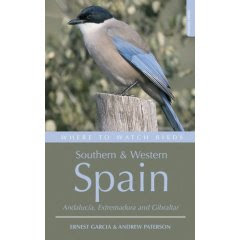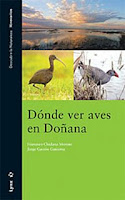HUGE BLOW TO EUROPE'S RAREST SEABIRD
Donate at www.justgiving.com/zinos-petrel-disaster
A massive forest fire on the island of Madeira has killed several breeding adults and 65% of this year’s chicks of Zino’s Petrel (Endangered). BirdLife International and SPEA (BirdLife in Portugal) have launched an urgent appeal for funds to carry out emergency conservation work needed before the winter sets in (copy and paste the address above) .
 Zino’s Petrel Pterodroma madeira is Europe’s rarest seabird and one of the rarest birds in the world, nesting only on a few mountain ledges in the rugged central massif of Madeira island. Once on the edge of extinction with numbers down to a few tens of pairs, intense conservation action over the past 20 years, led by the Natural Park of Madeira (Parque Natural da Madeira - PNM) with support from SPEA, the Freira Conservation Project and Funchal Municipal Museum, has seen its population grow to almost 80 pairs.
Zino’s Petrel Pterodroma madeira is Europe’s rarest seabird and one of the rarest birds in the world, nesting only on a few mountain ledges in the rugged central massif of Madeira island. Once on the edge of extinction with numbers down to a few tens of pairs, intense conservation action over the past 20 years, led by the Natural Park of Madeira (Parque Natural da Madeira - PNM) with support from SPEA, the Freira Conservation Project and Funchal Municipal Museum, has seen its population grow to almost 80 pairs. In recent weeks, forest fires have ravaged parts of Madeira, and on 13 August they hit the heart of the central massif. This area (which is protected as part of the EU’s Natura 2000 network) comprises a very important habitat and supports several endemic plants and animals, including the Zino’s Petrel breeding colony, where many nestlings were still in their burrows.
On 15 August, as soon as the ground and soil had cooled down sufficiently, PNM staff visited the breeding cliffs to assess the damage. The results were shocking: 25 young and 3 adults were found dead, and only 13 young fledglings were found alive in their underground chambers. As well as the dead birds, the fire exacerbated soil erosion, with several nesting burrows having disappeared.
“The loss of 65% of this year’s potential young is a huge blow to Zino’s Petrel. Our immediate conservation efforts are focusing on helping the remaining 13 fledglings to survive and minimising the risk of further soil erosion on the breeding ledges" —Ana Isabel Fagundes, SPEA-Madeira Coordinator.
“The loss of 65% of this year’s potential young is a huge blow to Zino’s Petrel. Our immediate conservation efforts are focusing on helping the remaining 13 fledglings to survive and minimising the risk of further soil erosion on the breeding ledges,” said Ana Isabel Fagundes, SPEA’s Madeira Coordinator.
“All nests with surviving chicks have been reinforced, all corpses removed, and bait stations for rats around the now barren nesting areas established. Burnt bushes and trees have also been removed to avoid the risk of adult birds colliding with them on their nocturnal visits to feed the chicks,” reported Paulo Oliveira, PNM Director.
Encouragingly, the immediate conservation action taken by PNM at the breeding colony appears to be working: “Since our first visit to the breeding ledges, we have monitored the 13 surviving fledgings closely and can confirm that they are still being fed by their parents and appear to be healthy,” reported Paulo Oliveira following his latest visit on 24 August.
The PNM and SPEA have now developed an action plan for the breeding colony. Immediate measures needed include covering areas with anti-erosion materials and constructing artificial nesting burrows, both of which have proven successful on other seabird breeding colonies on neighbouring Bugio island. Other planned work includes taking steps to help the natural vegetation recover through seed dispersal.
The PNM and SPEA are now seeking financial help to cover the costs of the materials and manpower needed to implement these essential emergency measures. BirdLife International has set up a secure online donation web page to help collect the urgent funds to help Zino’s Petrel. Click here to find out more and to donate.
So, dear reader, dig down in the bank account (preferably a sterling one to avoid change charges) and donate a bit to help and thanks on behalf of the Zino's PetrelsAndy



